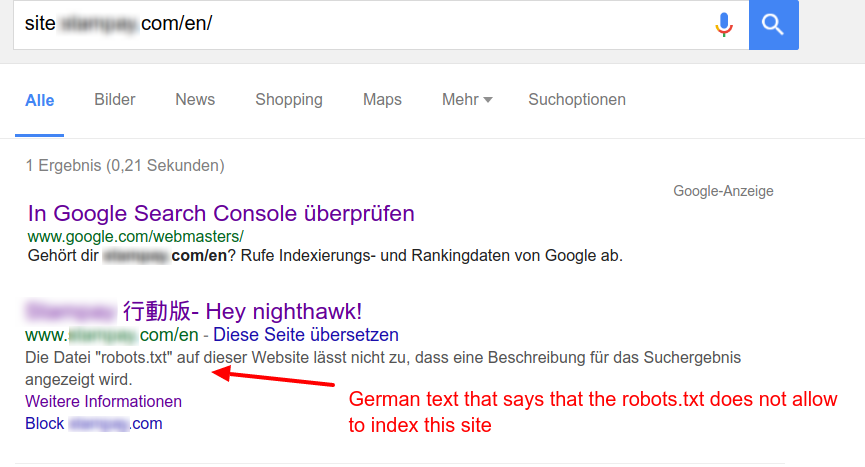robots.txt prevents pages from being specifically unindexable
You read that right.
Make the page crawlable and unindexable
To make sure a page does not appear in Google search results, make sure it is crawlable by robots.txt, and explicitly unindexable.
It’s common practice to use robots.txt in an effort to keep pages out of search engine indexes. However, to ensure a page does not get indexed, it must be crawlable.
Google (and Bing) will exclude a page from the index if instructed to by the page. This can be an X-Robots-Tag HTTP header, or a noindex meta tag in the HTML.
But Googlebot can’t read those instructions if robots.txt forbids them from reading the page. So Google takes the benefit of the doubt and places the page into the index (if they like).
Here’s how Google explains it:
After the robots.txt file (or the absence of one) has given permission to crawl a page, by default pages are treated as crawlable, indexable, archivable, and their content is approved for use in snippets that show up in the search results, unless permission is specifically denied in a robots meta tag or X-Robots-Tag.
Google’s half-fixes
You can use Google Webmaster Tools to temporarily remove a page from the Google index. But there’s no set time on how long the removal is good for. It's not really a solution.
Google also has an experimental no-index feature in robots.txt that is designed to allow web masters to pages to be both un-crawlable and un-indexable. As Google makes no guarantee about its functionality, use at your own risk.
Also, be aware other search engines don’t support no-index directives inside robots.txt. Bing webmaster documentation states:
To remove a URL from their own site from the Bing index…Bingbot needs to be able to access the URL, so you should not block the URL from being re-crawled through robots.txt.
What is robots.txt for, then?
robots.txt is intended as a solution for ensuring search engine bots don’t inflict unwanted spidering traffic on websites — that traffic might incur fees from the web host, or (if your website is fragile) might cause performance or stability issues.
These are (ostensably) separate concerns from not wanting your pages to be findable by users searching on Google.
About the gibberish associated with your page in the SERPs
The incorrect content in the search results associate with your page may come from the anchor text of pages linked to your site. Since the page is uncrawlable this second-hand information can be the best available information Google has about your page’s content.
It would seem that some of content getting associated with your site is from shadier areas of the web. These places might be linking to your site for any number of reasons, most of which involve attempts to associate themselves with your good reputation.



/enin robots.txt then the Googlebot is not going to see the 301 redirect. Since the page is blocked, the text "Hey nighthwak" is probably coming from some malformed anchor.hello nighthawkin the project in the past. But we never had a Chinese translation. This feels a bit strange for me.<a href="domain.com/en">[CHINESE] - Hey nighthawk</a>shows up in the search results?